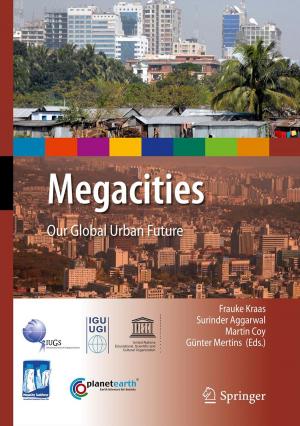| Author: | Claude Gratton | ISBN: | 9789048133413 |
| Publisher: | Springer Netherlands | Publication: | December 15, 2009 |
| Imprint: | Springer | Language: | English |
| Author: | Claude Gratton |
| ISBN: | 9789048133413 |
| Publisher: | Springer Netherlands |
| Publication: | December 15, 2009 |
| Imprint: | Springer |
| Language: | English |
Infinite regress arguments are part of a philosopher's tool kit of argumentation. But how sharp or strong is this tool? How effectively is it used? The typical presentation of infinite regress arguments throughout history is so succinct and has so many gaps that it is often unclear how an infinite regress is derived, and why an infinite regress is logically problematic, and as a result, it is often difficult to evaluate infinite regress arguments. These consequences of our customary way of using this tool indicate that there is a need for a theory to re-orient our practice.
My general approach to contribute to such a theory, consists of collecting and evaluating as many infinite regress arguments as possible, comparing and contrasting many of the formal and non-formal properties, looking for recurring patterns, and identifying the properties that appeared essential to those patterns. Two very general questions guided this work: (1) How are infinite regresses generated in infinite regress arguments? (2) How do infinite regresses logically function as premises in an argument? In answering these questions I clarify the notion of an infinite regress; identify different logical forms of infinite regresses; describe different kinds of infinite regress arguments; distinguish the rhetoric from the logic in infinite regress arguments; and suggest ways of improving our discussion and our practice of constructing and evaluating these arguments.
Infinite regress arguments are part of a philosopher's tool kit of argumentation. But how sharp or strong is this tool? How effectively is it used? The typical presentation of infinite regress arguments throughout history is so succinct and has so many gaps that it is often unclear how an infinite regress is derived, and why an infinite regress is logically problematic, and as a result, it is often difficult to evaluate infinite regress arguments. These consequences of our customary way of using this tool indicate that there is a need for a theory to re-orient our practice.
My general approach to contribute to such a theory, consists of collecting and evaluating as many infinite regress arguments as possible, comparing and contrasting many of the formal and non-formal properties, looking for recurring patterns, and identifying the properties that appeared essential to those patterns. Two very general questions guided this work: (1) How are infinite regresses generated in infinite regress arguments? (2) How do infinite regresses logically function as premises in an argument? In answering these questions I clarify the notion of an infinite regress; identify different logical forms of infinite regresses; describe different kinds of infinite regress arguments; distinguish the rhetoric from the logic in infinite regress arguments; and suggest ways of improving our discussion and our practice of constructing and evaluating these arguments.















